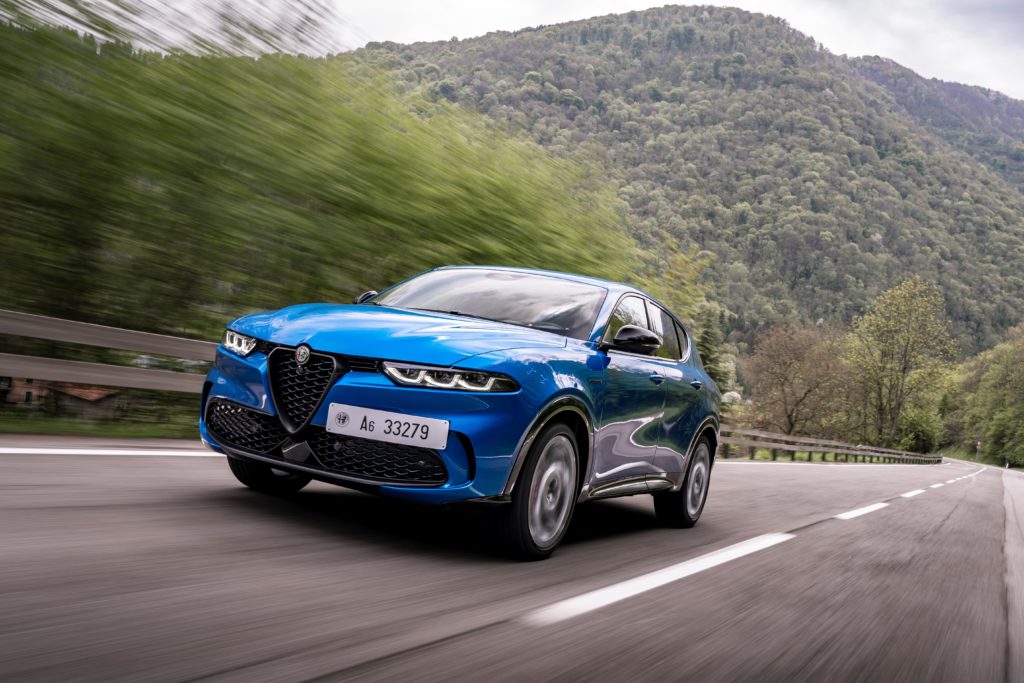European new-car markets finally return to year-on-year growth in August
05 September 2022

The recovery of the French, Italian, and Spanish new-car markets resumed in August after losing momentum in July, explains Autovista24 senior data journalist Neil King.
New-car registrations in the key European markets of France, Italy, and Spain all recorded year-on-year growth in August. This was the first positive month this year in France and Italy, and the first time the Spanish market has expanded, compared to 2021, since February.
The resumption of recovery is good news after the loss of momentum in July. This confirms Autovista24’s assumption that the gradual improvement in new-car supply has not derailed, but that there was merely a hiatus because of mitigating circumstances, including the heatwave that scorched Europe.
2022 forecasts held, 2023 downgraded
The displacement of registrations from July into August means that there has not been a significant improvement in the underlying market dynamics. Given this, and that improving supply was already factored in, the 2022 forecasts for all three markets have been maintained.
However, the cost-of-living crisis sweeping Europe shows no sign of abating. Spiralling energy costs continue to stoke the inflationary fire, which is curtailing consumers’ purchasing power and willingness to commit to big-ticket items such as a new car. Underlying demand is therefore challenged, and Autovista24 has downgraded its outlook for 2023 and beyond.
Significant risks to this challenging forecast remain, depending on the duration and severity of the conflict in Ukraine and the shutdown of the North Stream gas pipeline. Even assuming supply is fully restored soon, and wholesale gas prices do not rise significantly, the effectiveness of government measures to provide financial support to consumers remains to be seen.
Long-awaited French growth
According to data released by the CCFA, the French carmakers’ association, 91,406 cars were registered in the country last month. The year-on-year growth, of 3.8%, was the first since May 2021. Similarly, the seasonally-adjusted annualised rate (SAAR) reached its highest level since June 2021, at 1.77 million units.
The French new-car market has been heavily affected by regulatory changes introduced at the start of the year. The malus (penalty) for registering new cars extended to those with CO2 emissions of 128g/km or more. A weight-based tax was also introduced, which applies to all new cars weighing over 1.8 tonnes. The war in Ukraine derailed the market correction that began in February, but the cumulative decline in the first eight months of the year has improved to 13.8%.
The recent extension of existing incentives for electric vehicles (EVs) will support French new-car demand in the coming months, but supply will ultimately dictate the market’s performance in 2022.
The volume forecast has been held at 1.57 million units, 5.2% lower than in 2021, but next year’s outlook has been reduced to 1.88 million new-car registrations, equating to growth of 19.7%. This remains 15% lower than the 2.2 million new cars registered in 2019, prior to the COVID-19 pandemic.
SAAR soars in Italy
Industry association ANFIA reports that 71,190 new cars were registered in Italy last month, 9.9% more than a year earlier. This marks the first monthly market expansion since June 2021 and the SAAR, at 1.73 million units, was at its highest level since December 2020.
However, aside from the catch-up effect from July, the growth in August was against a low base of comparison in 2021.
‘The positive sign in August, a month with traditionally low volumes, derives largely, as in the previous month, from the comparison with a particularly black August 2021, which had closed with a trend decline of 27.3%,’ said Paolo Scudieri, president of ANFIA.
Aside from supply challenges and inflationary pressure in Italy, new-car registrations were restrained as consumers awaited the reintroduction of purchase incentives announced in April. As these were reinstated on 25 May, the recovery of demand, especially for EVs, is materialising.
Moreover, at the beginning of August, the Italian government extended the availability of the incentives to rental and leasing companies, which were previously excluded, and is supporting the installation of charging points in apartment buildings.
Nevertheless, new-car demand will invariably suffer as businesses and consumers face higher energy costs and broader inflationary pressure.
‘We therefore call on the current government and all political forces to further measures to compensate for high energy prices as soon as possible. For the next government, moreover, we hope that it will continue the plan to reconvert the automotive sector,’ commented Scudieri.
Autovista24 has maintained its forecast for 2022, at 1.37 million units, but has lowered the outlook for 2023 to fewer than 1.7 million units. At this level, the market would be 11.5% smaller than in 2019.
Private buyers hold back Spain
A total of 51,907 new cars were registered in Spain during August, according to ANFAC, the country’s vehicle manufacturers’ association. The year-on-year growth, of 9.1%, was the first since February, and the SAAR was the highest for any month in 2022, at 878,000 units. Accordingly, the year-to-date contraction has reduced to 9.4%, but the recovery remains fragile.
'A change in trend is not expected, given the current economic context with inflation at 10.4% and geopolitical tensions. In fact, the data for the last month is 30.3% lower than the 74,490 passenger cars sold in August 2019, when a serious pandemic was not expected,’ ANFAC stated.
Tania Puche, communications director of GANVAM also emphasised that sales to private buyers, which indicate the true health of the market, have been especially low because the ‘current climate of economic uncertainty does not invite buying.’
‘This weakness in demand is evidenced by the fact that, in a context of lack of supply derived from the supply crisis, the remaining vehicles have not gone to the private channel - which is the one that is prioritised because it is the one that contributes the most profitability - but to the rental companies,’ Puche added.
In this unfavourable climate, Autovista24 has not amended its forecast for 2022, which anticipates 813,000 new-car registrations, marking a year-on-year decline of 5.4%. For 2023, the market is no longer expected to exceed the one-million mark.



